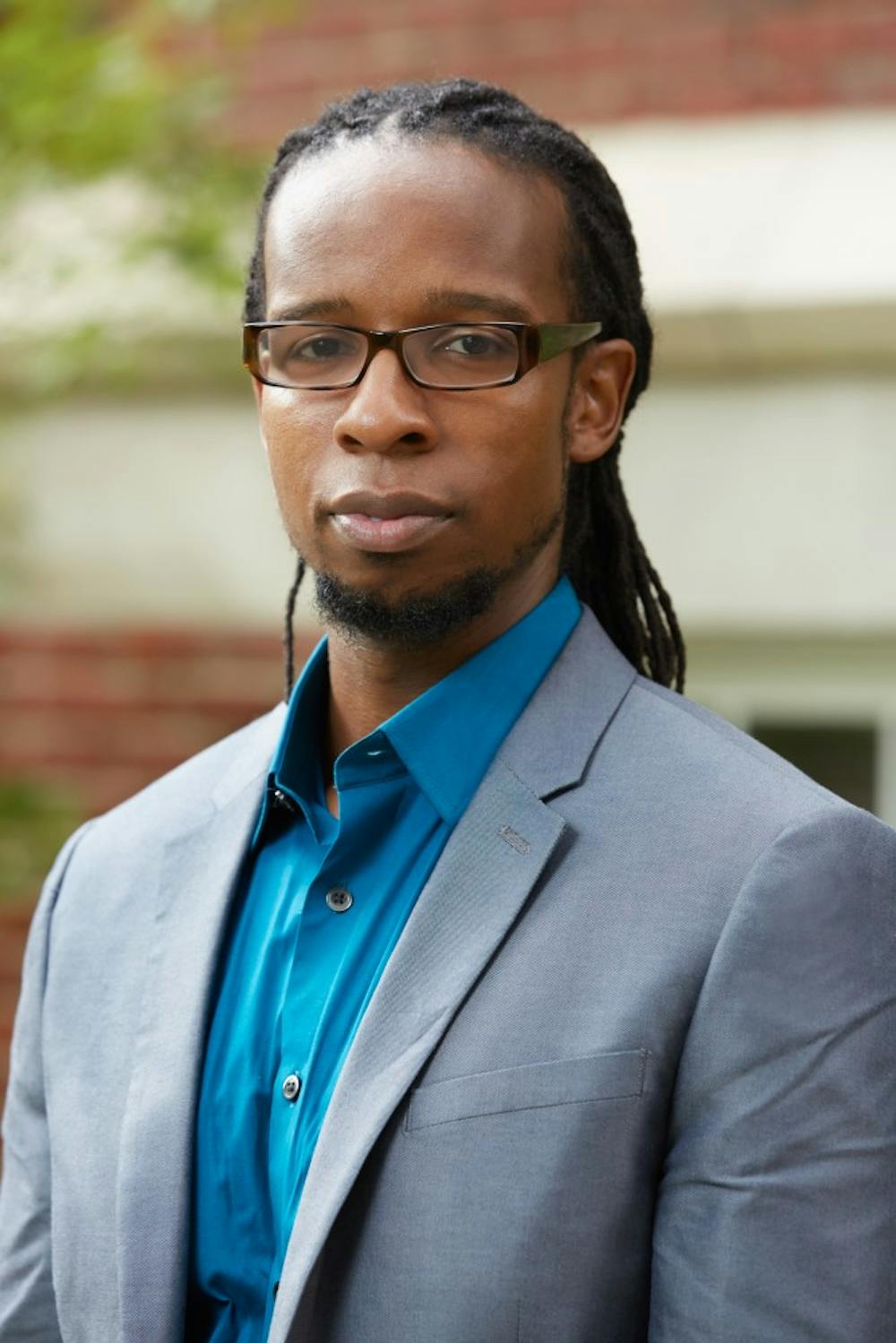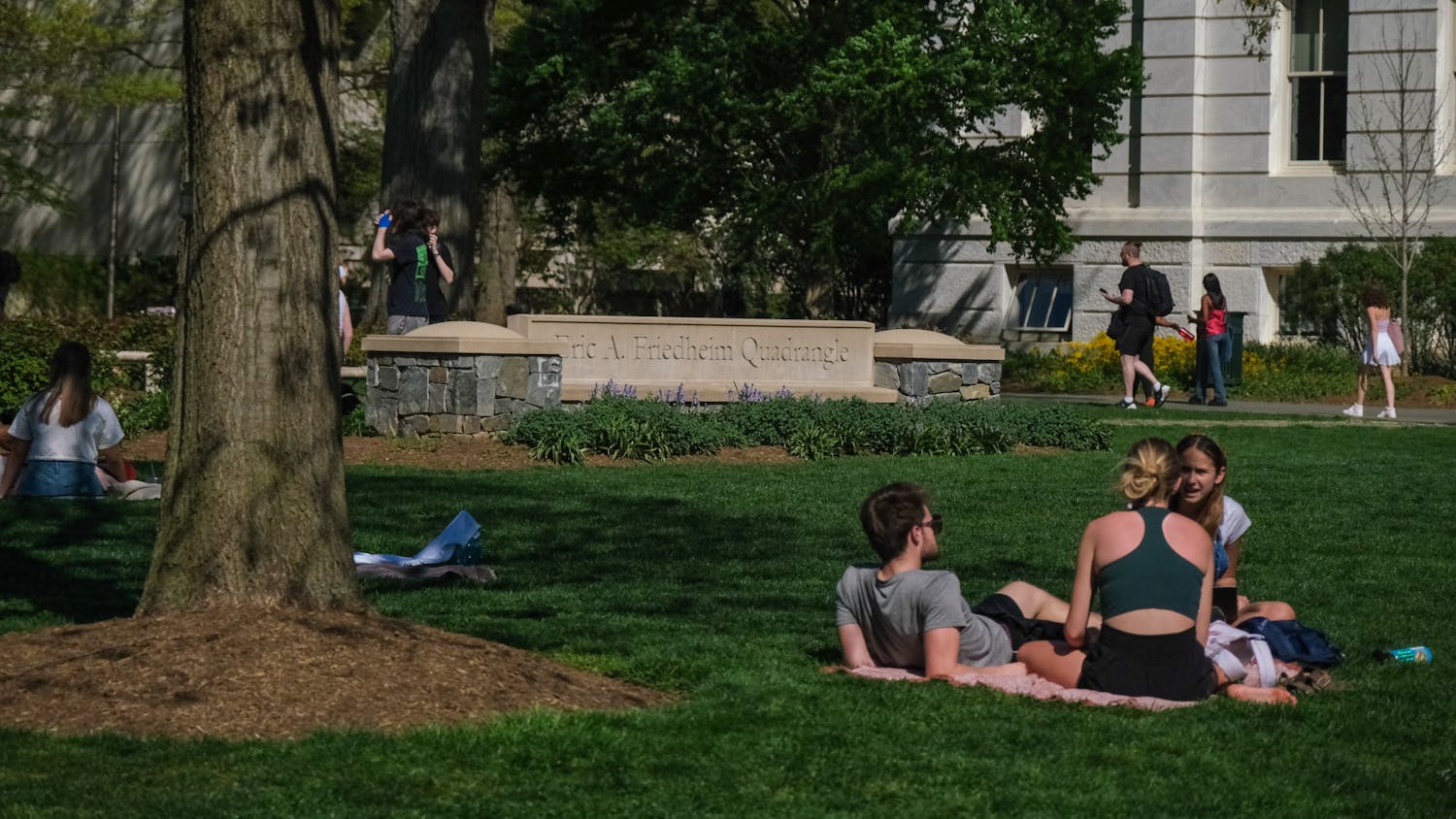Scholar and historian Ibram X. Kendi will become the founding director of the new Anti-Racist Research and Policy Center at AU beginning in August, according to an email announcement by the School of International Service on May 10. Kendi will also serve as a professor of history and international relations in the College of Arts and Sciences and the School of International Service, respectively.
Kendi spoke on campus on Oct. 13, 2016 as part of a national tour to promote his new book, “Stamped From The Beginning, The Definitive History of Racist Ideas in America,” which later won the 2016 National Book Award for nonfiction. Kendi said in a phone interview that when he came to speak at the University, he had already conceived the idea of an anti-racist research center.
“The more that I talked to people about anti-racist ideas and what anti-racist ideas allow us to see, I came to realize that means that racial inequality must be the result of racial discrimination or racist policies,” Kendi said. “After the talk, I began discussing with the two deans [of CAS and SIS] about coming to AU and pitched the idea and they were quite excited about it. Over the last six months, we’ve been talking about it more and more, and I’ve been drafting a proposal and it’s still very preliminary.”
Peter Starr, dean of the College of Arts and Sciences, and James Goldgeier, dean of the School of International Service, worked with Kendi to bring the center to AU. Goldgeier said they originally became interested in bringing Kendi to AU after he spoke on campus in October.
“He came in January to meet with faculty in the College of Arts and Sciences and the School of International Service to get their input into whether or not we would want to make an offer to bring him to AU,” Goldgeier said. “So, it’s been over the past several months we’ve had that conversation.”
The announcement of the new center came just nine days after a hate crime targeting AU’s chapter of Alpha Kappa Alpha Sorority, Incorporated occurred on campus, sparking a community meeting and protests. While Kendi said the timing is significant, he noted that the plan for the center was already underway by the time of the incident.
“I don’t think the incident itself really changed anything in terms of my hire. Everything was sort of finalized before that incident,” Kendi said “But on the other hand, I do think that I personally became even more encouraged to come to AU. I think that the faculty and the administration who are aware of the center became even more sort of encouraged to bring the center to AU, too.”
Starr said that the timing of the announcement of the center was not purposely made to coincide with the hate crime. Kendi returned his contract to AU the Sunday night before the hate crime occurred on Monday, May 1.
“Hiring somebody at a very senior level as this is a very long, complicated process that involves things like getting votes from faculty on appointment, getting votes to tenure someone, negotiating salary and startup and the material benefits of the center,” Starr said. “It just so happened to be a happy accident.”
The center is still in a preliminary phase and will make progress in a slow build, Kendi said. The ultimate goal is for it to be well-funded and bring together faculty both at AU and from around the world to work on national and international racial inequities and the discriminatory policies that cause those inequities, Kendi said.
“I’m hoping for the center to be a place where the faculty and some of the strongest and most committed researchers around the world could come solve many of the racial problems that we’re facing in this country and around the world,” Kendi said.
While the center will be based around the research of faculty, Kendi said students will have the opportunity to engage in research projects being conducted by the center. Kendi said that he would love for students to volunteer or intern in the center, and he hopes that faculty members might center some of their coursework around research being conducted by the center so that students can be involved in work that will make a difference.
“One of the reasons why I chose to come to AU is because of the student body: a body that’s well-known across the country for its political involvement, for its political activism, and I’m really excited to involve students in the projects,” Kendi said. “I can imagine that students will play a very vital role in engaging in these research projects. Students will be able to be involved in some of the most critical projects being conducted on race in this country.”





